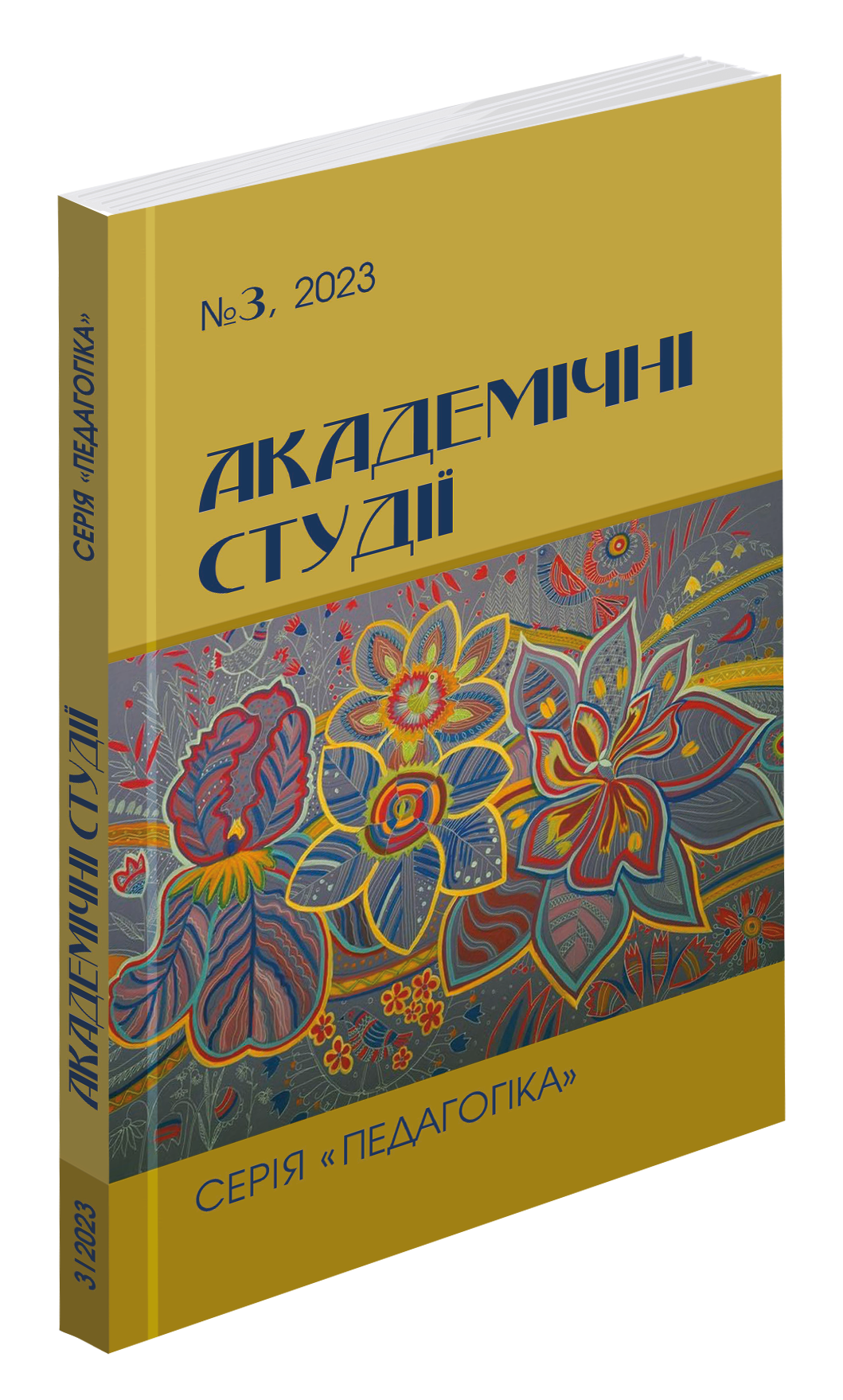Abstract
The article examines the peculiarities of using the mathematical tablet “Geobord” as a means of developing logical thinking of younger schoolchildren. The analysis of the works of scientists regarding the definition of the concepts of “thinking”, “logical thinking”, “logical skills” was carried out. The following methods of logical thinking are characterized: analysis, synthesis, comparison, abstraction, generalization, classification, systematization. Analysis allows you to divide the whole into parts; synthesis is a means of combining certain separate elements into a single whole; abstraction involves isolating specific features and turning away from others; comparison establishes similarities or differences; generalization serves as a means of combining phenomena or objects according to certain characteristics; classification allows dividing objects by features; systematization involves division and subsequent unification. The specified logical techniques are interconnected in the process of cognition and play an important role in it. The functions and role of the mathematical tablet in the education of younger schoolchildren have been clarified. And exercises for the development of logical thinking of younger schoolchildren using the mathematical tablet “Geobord” are also offered. The use of a geoboard in mathematics lessons contributes to the development of logical thinking of younger schoolchildren, the formation of a holistic picture of the world in them, the development of constructive skills, ideas about spatial relationships, geometric figures, numbers, arithmetic operations, etc. The child will be able to experiment, creating patterns and shapes with the help of rubber bands, which promotes the development of logical thinking. In addition, students develop skills for independent and collective work, an individual and creative approach is implemented, and research activity is intensified.
References
Вороніна Л. В., Карпова М. В. Поняття логічного мислення у психолого-педагогічній літератури. Традиції та інновації у педагогічній освіті. Збірник наукових праць на V Міжнародній конференції. 2019. С. 18–21.
Державний стандарт початкової освіти. URL: https://nus.org.ua/news/uryad-opublikuvav-novyj-derzhstandartpochatkovoyi-
osvity-dokument/ (дата звернення: 10.09.2023).
Лук’яненко К. Ігри на уроках математики з планшетом Geoboard. Фізико-математична освіта. Науковий журнал. Суми : СумДПУ ім. А. С. Макаренка. 2014. No 1(2). С. 19–25.
Педагогічний енциклопедичний словник [гол. ред. Б.М. Бім – Бад]. 2005. 324 с.
Романенко, Л., & Чорнобай, В. (2021). Дидактичні особливості застосування планшету GEOBOARD на уроках математики в 1 класі. Молодий вчений, 8(96), 74–78. URL: https://doi.org/10.32839/2304-5809/2021-8-96-16 (дата звернення: 10.09.2023)
Сільвейстр А. М., Моклюк М. О., Розвиток логічного мислення в учнів основної школи на уроках фізики. Педагогіка формування творчої особистості у вищій і загальноосвітній школах. Випуск 73. 2020. С. 144–149.
Цибух Л. М., Цибух Д. Ф. Багатоваріантність розв’язання математичних завдань як фактор розвитку творчого та логічного мислення. URL: https://scienceandeducation.pdpu.edu.ua/journals/2012/NiO_9_2012/2/Tsy.htm (дата звернення: 10.09.2023).
Черушева Г. Б., Щіпановська О. Р., Пархоменко В. В. Психологія і педагогіка : навч. посіб. Ч. І / за ред. д.ф.н., проф. І. Ф. Надольного. Вид. 2-ге, (перероб. та допов). Київ : ДП «Інформ.- аналіт. агентство», 2012. 377 с.
Ящук О. Логічні вміння як невід’ємна складова розвитку мислення молодшого школяра. URL: https://dspace.udpu.edu.ua/handle/6789/3641 (дата звернення: 13.11.2023).

